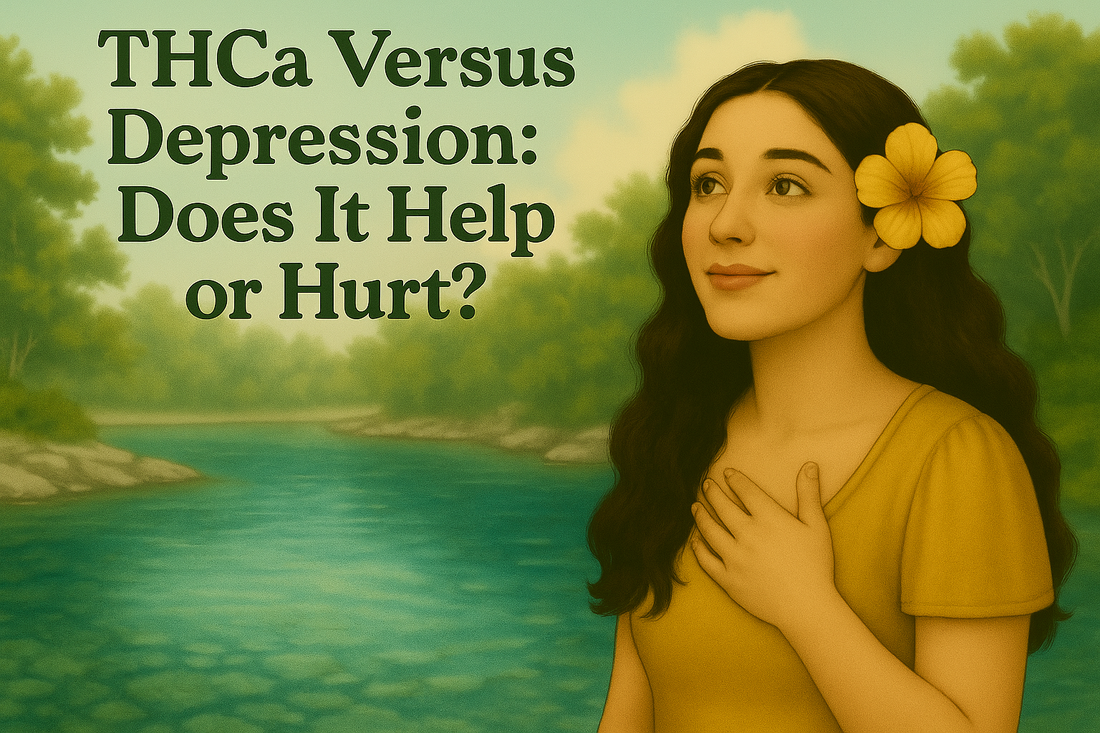
THCa and Depression: Can This Non-Psychoactive Compound Help You Heal?
Share
Can THCa Help with Depression?

If you’ve been looking for a natural, non-psychoactive way to support your mood, you’re not alone. More people are exploring THCa—tetrahydrocannabinolic acid—as a gentle alternative to traditional cannabis or even CBD.
How THCa Differs from THC and CBD
THCa is the raw, non-psychoactive form of THC found in fresh cannabis. Unlike THC, it doesn’t produce a high when consumed in its natural state (like through juicing or low-temp smoking). Unlike CBD, which has been heavily studied and widely embraced, THCa is still emerging—but it shows promise.
Can Depression Be Caused by Inflammation?
Many scientists now believe that inflammation in the brain—known as neuroinflammation—can directly contribute to mood disorders like depression. When the brain is inflamed, it can interfere with serotonin levels, disrupt sleep, and dull motivation.
How THCa Might Help
THCa has been shown in early studies to activate PPAR-γ receptors, which help reduce inflammation and protect brain cells. By calming these inflammatory pathways, THCa may help restore emotional balance without the fog or fatigue often caused by prescription medications.
In other words, **THCa may support the mind by helping soothe what's happening in the body.**
So… Does THCa Help or Hurt?
For most users, THCa seems to offer a **hopeful middle ground**—gentle enough not to cloud the mind, but potent enough to lift the mood. If depression has left you feeling disconnected or foggy, microdosing THCa might help bring you back to center without overwhelming your system.
✨ Our Pick for Emotional Wellness
For anyone navigating depression, we recommend exploring our Full Bloom Collection—specifically the strains high in THCa with naturally uplifting terpenes like **limonene** and **linalool**.
 Explore the Full Bloom 🌸
Explore the Full Bloom 🌸
- Rock EM, Parker LA. *Effect of THCa on brain inflammation via PPARγ pathways*. Biochemical Pharmacology, 2017.
- Kiecolt-Glaser JK, Derry HM. *Inflammation: The Common Pathway of Stress and Depression*. Current Directions in Psychological Science, 2015.
- Russo EB. *Taming THC: Potential cannabis synergy and phytocannabinoid-terpenoid entourage effects.* British Journal of Pharmacology, 2011.
- National Library of Medicine. THCa and its potential therapeutic properties. [https://www.ncbi.nlm.nih.gov](https://www.ncbi.nlm.nih.gov)
